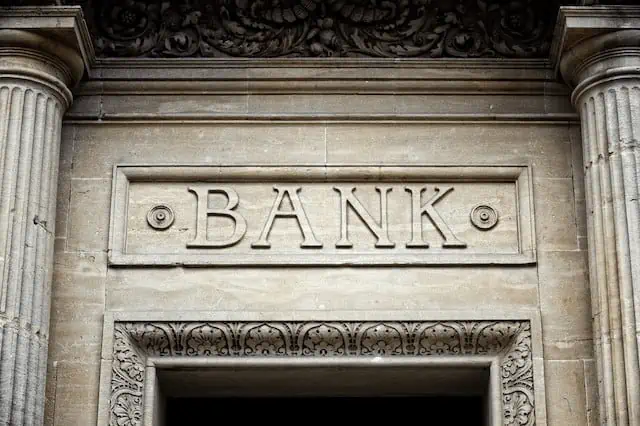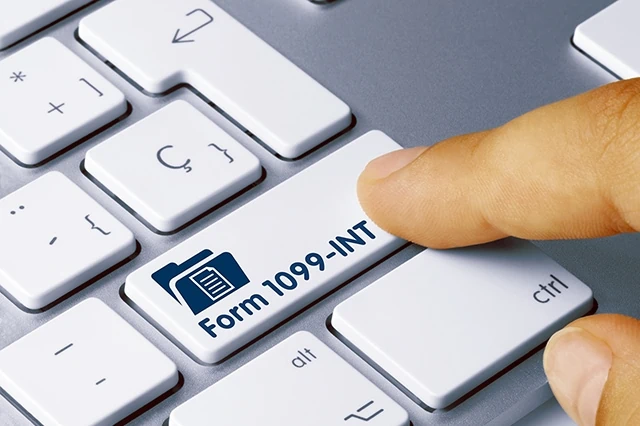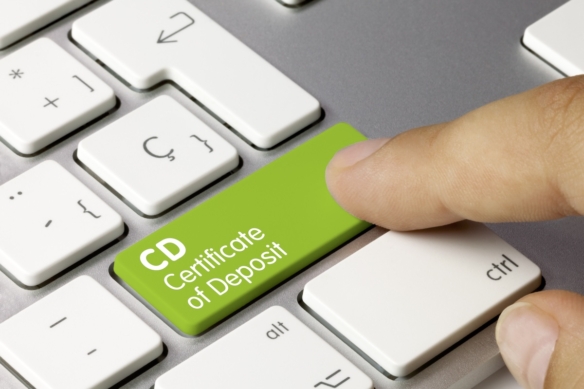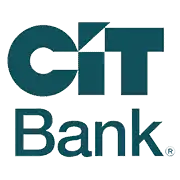Good work! You’ve already succeeded at the hard part—saving money. Now, you just need to choose the best savings vehicle to grow it. And a certificate of deposit (CD) can be an excellent place to store funds.
The question, of course, is whether now’s a good time to buy CDs.
The answer largely depends on what kind of return you’re looking to get, how liquid you need your funds to be, and a few other factors, including the likely direction of interest rates.
Today, we’ll help you determine for yourself whether now (or any time) is a good time to buy CDs. To get there, we’ll review how CDs work, their pros and cons, even a few popular CD alternatives. Then we’ll talk about how this information can help you figure out when you should or shouldn’t consider stashing your money into a CD.
Disclaimer: This article does not constitute individualized investment advice. These securities appear for your consideration and not as personalized investment recommendations. Act at your own discretion.
Table of Contents
What Are Certificates of Deposit (CDs)?

Certificates of deposit (CDs) are savings products offered by most banks and credit unions. They pay you a fixed interest rate on a lump sum of money over a predetermined period of time. This interest rate is typically much higher than standard and even high-yield savings accounts (HYSAs).
CDs typically are insured up to at least $250,000, either through the Federal Deposit Insurance Corporation (FDIC) or National Credit Union Administration (NCUA), depending on where you open your CD.
How Do CDs Work?

You usually will open a CD with a bank or a credit union. You’ll need to make a minimum deposit—while they vary from one institution to the next, you’ll usually need between $500 and $1,500.
This money is effectively a loan to the bank or credit union. The money will be locked up over the set term of the CD—terms largely span from three months to five years—and you’ll be paid a fixed interest rate during that time. The CD will likely advertise an annual percentage yield (APY). The APY is what you can actually expect to receive in one year as the interest is added to your original deposit and generates additional interest (aka compounding interest).
Technically, you can withdraw your money before the term is over, but it’s common for a financial institution to assess an early withdrawal penalty.
Make sure you sign up for The Weekend Tea, Young and the Invested’s free weekly newsletter that over 10k monthly readers use to level up their money know-how.
What Are the Advantages of CDs?

Among the reasons to like CDs?
- They’re extremely safe. No investment is risk-free, but CDs have exceedingly low risk. You’re receiving a guaranteed rate of return, and even if the bank or credit union where you opened the CD goes out of business, as long as they’re FDIC- or NCUA-insured, your money will be returned.
- They’re simple to open. Almost every bank and credit union offers CDs. It usually takes just 10 to 20 minutes to apply—and some institutions even allow you to open them online.
- They offer high yields. CDs tend to offer better yields than high-yield savings accounts and money market accounts. That’s largely to compensate for the fact that your money will be locked up over a set period of time.
What Are the Disadvantages of CDs?

CDs are an effective savings product, but they’re hardly perfect. A couple drawbacks to keep in mind:
- They’re illiquid. Technically, you can withdraw your money from a CD before its term is over, but you’ll likely face an early withdrawal penalty. (Some people create a “CD ladder” to help with this illiquidity, stashing their money in a series of CDs that mature at different intervals. That way, they’re never too far away from one maturing should they need extra funds.
- They’re capped. CDs offer a fixed amount of income. So, while they do deliver more interest than your typical HYSA or money market account, they’ll rarely be on par with more aggressive investments, such as stocks.
Related: Best Savings Account Alternatives [9 Other Ways to Save]
Certificate of Deposit Math Example

Here’s an example just to show you how CD returns are calculated. (This is in no way a prediction of future interest rates.)
Let’s say you opened a CD with an initial deposit of $10,000. It has a one-year term at a 5% APY. When you withdraw your money after a year, your balance would be $10,500 ($10,000 original deposit, $500 in interest).
Remember: That APY includes the effects of your interest compounding. The longer the CD term, the more effect that compounding can have.
Let’s say you opened a CD with an initial deposit of $1,000. It has a five-year term at a 5% APY. When you withdraw your money after a year, your balance would be $12,762.82 ($10,000 original deposit, $2,762.82 in interest).
In other words, rather than making $500 a year, as the first example would suggest, you’d actually earn a little more than $550 per year thanks to compounding interest.
Note: This example doesn’t include any federal taxes you might owe.
Related: 9 Best Fidelity Index Funds to Buy
Do I Pay Taxes on CD Earnings?

Yes. CD interest is treated as ordinary income, and thus is taxed at your marginal tax rate.
CD interest is taxable the year it’s paid. So, let’s say you have a CD with a five-year term. When it’s time to prepare your filing for the 2025 tax year, you’ll only need to pay taxes on the interest you earned in 2025.
If you’ve earned more than $10 in interest in a year, you should receive a 1099-INT from the CD issuer.
How Can I Invest in CDs?

All you need to do is open a CD through a bank or credit union. You can apply and be accepted within 10 to 20 minutes—at that point, you simply agree to the terms and transfer the money.
But don’t think you have to open a CD with your current bank. In fact, it’s worth shopping around. CD rates can vary substantially, and online banks are frequently able to offer more competitive rates than brick-and-mortar institutions.
One of our top recommendations for new CDs is CIT Bank, an online-only institution that offers traditional CDs, as well as no-penalty 11-month CDs, jumbo CDs, and more.
- CIT Bank is an online bank which offers competitive interest rates on its multiple products
- Earn many times more than the national average interest rate by keeping your cash and other savings in one of CIT Bank's banking products
Related: 7 Best Schwab Index Funds to Buy
CDs vs. Treasuries

CDs and Treasury bonds are both relatively safe, fixed-rate investments, but there are numerous differences:
- CDs are accounts where you store your money. A Treasury bond is an investment you own.
- A CD’s value can only grow, which occurs as interest compounds. In addition to providing income, Treasury bonds can gain in value … but they can also lose value, too.
- CDs’ rates compound either monthly or daily. Treasury bonds either pay interest semi-annually or, in the case of T-bills, at maturity.
- CDs are extremely illiquid; trying to withdraw your money before the end of its term will typically result in a penalty. Treasury bonds are extremely liquid, able to be sold pretty much whenever you want.
- CD interest is fully taxable at the federal, state, and local levels. Treasury bond interest is exempt from state and local taxes.
- CDs’ terms range from three months to five years. Treasury bonds’ lengths range from four weeks to 30 years.
I should note that you can get around a few of CDs’ weaknesses. For instance, you can actually add CDs to a traditional individual retirement account (IRA) or Roth IRA, which shelters that income from taxation while it’s in the account. (Just remember: With a traditional IRA, you still pay taxes on withdrawals in retirement.)
Also, a CD ladder can help you get past some liquidity issues.
Related: 7 Best Schwab Funds to Buy
CDs vs. High-Yield Savings Accounts

High-yield savings accounts and CDs both allow you to generate a higher interest rate on your money than a traditional savings account.
CDs usually offer higher interest rates than high-yield savings accounts. Also, CDs’ rates are fixed—HYSAs’ rates can fluctuate, which is great when rates rise, but not so advantageous when they decline.
On the flip side, HYSAs provide much more access to your money, whereas you’ll virtually always pay a penalty if you try to withdraw from a CD before its term has expired. To be clear: Some high-yield savings accounts provide unlimited access to your funds, while others enforce a monthly transaction limit. But even in the latter’s case, that’s a lot more liquidity than CDs provide.
Generally, a high-yield savings account is better for short-term savings you might need to access in a pinch. A CD is a more suitable home for savings you are confident you won’t need to touch before the CD matures.
Related: 7 Best T. Rowe Price Funds to Buy
CDs vs. Money Market Accounts

Like with HYSAs, CDs also tend to offer higher yields than money market accounts. They also offer fixed rates, whereas money market accounts have variable interest rates.
However, money market accounts are much more liquid. Users are typically able to write checks against, and/or use a debit card associated with, the account. (Though the number of monthly transactions is typically limited.)
Make sure you sign up for The Weekend Tea, Young and the Invested’s free weekly newsletter that over 10k monthly readers use to level up their money know-how.
CDs vs. Stocks

CDs and stocks are two very different types of investment.
CDs are highly illiquid but provide a virtually guaranteed rate of return. And that rate, at least currently, is fairly attractive.
Stocks, on the other hand, provide almost no guarantees—they’re far riskier than CDs will ever be. That said, stocks also deliver a higher average annual return, historically speaking, and provide much higher upside potential than CDs.
Moreover, stocks are incredibly liquid—you can buy and sell at will (though you’ll have to deal with capital gains taxes if you’re buying and selling in a taxable account).
Given all this, CDs and stocks should be treated much differently. Stocks should largely be relied upon to build wealth over longer periods of time, with the understanding that the worth of those investments could fluctuate considerably. CDs, however, are a great way to modestly grow any money you don’t need right this second, but know you’ll need at or after some determined point in the short- to medium-term.
Related: 9 Monthly Dividend Stocks for Frequent, Regular Income
So, Is it a Good Time to Buy CDs?

You know up front what kind of return you’re going to get from a CD. So as long as you’re happy with the rate of return a CD will give you, there’s never really a bad time to buy a CD.
That said, some times are better than others.
CDs’ rates are in large part determined by the Federal Reserve’s benchmark interest rate. The higher that rate, the higher CDs’ rates need to be to compete with other products that also are tied to the federal funds rate.
As many financial experts and investment strategists correctly predicted, the Federal Reserve began lowering interest rates earlier this year. And in fact, of late, the Federal Reserve has signaled that interest-rate hikes are coming down materially in the coming months and years. (However, no one is quite sure how long the Fed will take to lower rates during its upcoming easing cycle.)
So, if you’re reading the Fed tea leaves, right now is probably a good time to buy CDs. Because today’s rates could very well be the highest on offer over at least the next year.
Related:









